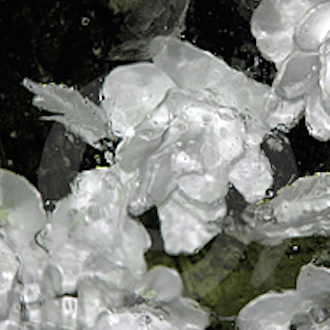
 The Yoruba tradition of Ifa is very clear about eewo-taboos-and every person initiated into Ifa, Itelodu, or who has a naming ceremony at birth, is given their taboos to guide them in life. These go beyond the Christian Ten Commandments of “Thou Shalt not…”. The taboos are very specific to your own special life path and destiny, and are put in place to assure that you achieve iwa pele, perfection, in all aspects of your life. While the Yoruba of old made it very clear that Olodumare is watching all we do, admonishing to not take what is not ours, and not betray or cause harm to others, it is our own personal taboos which we wittingly or unwittingly break that can cause our downfall in life.
The Yoruba tradition of Ifa is very clear about eewo-taboos-and every person initiated into Ifa, Itelodu, or who has a naming ceremony at birth, is given their taboos to guide them in life. These go beyond the Christian Ten Commandments of “Thou Shalt not…”. The taboos are very specific to your own special life path and destiny, and are put in place to assure that you achieve iwa pele, perfection, in all aspects of your life. While the Yoruba of old made it very clear that Olodumare is watching all we do, admonishing to not take what is not ours, and not betray or cause harm to others, it is our own personal taboos which we wittingly or unwittingly break that can cause our downfall in life.
The eewo can be about which profession you should enter, a type of area to live, events you attend, colors or type of cloth that you wear, food and drink to eat and what you should give as gifts or how you entertain in your home and many other variables.
Some taboo are ancestral and handed down, some come from being born into a certain village, some from following a certain profession and some come from being under a specific orisa such as Osun, Olokun etc. For instance, it is forbidden for devotees of Osun to eat guinea corn, Obatala devotees can never drink palm wine or get tipsy to the point of being drunk, or preferably not drink alcohol at all. Depending on your odu, these taboos all come to the forefront and must be followed in order to assure your happiness in life. Following taboos ensures that a village, community, home and your personal life be smooth and sweet. Once you have knowledge of your taboos and continue to go against them, you will be bringing down misery upon your head in various ways. You might remain in poverty, not produce children, have no peace in the home or in your self. The odu of the Ifa corpus are very clear on this point.
Many odu Ifa illustrate the plight of orisa when they broke their taboos and how they discovered just where they were breaking that taboo. Osun was tricked unknowingly into eating guinea corn when she was eating emo, a type of rat, not knowing that the area where the rats were caught was in fact a farm of guinea corn where they were feasting. She took the appropriate measures to come into alignment with her taboo. If the orisa themselves followed the restrictions than how much more so must we also strive to not break our own taboos?
The orisa or imale, strove to achieve greatness, we are all striving to achieve our balance of perfection in the spiritual and material world. By abiding by our taboos we are giving ourselves the best help we can. Breaking taboos is something that will erode one’s life slowly over the long run, or, might cause a quick blow as a reminder that one is breaking a taboo. We must remain vigilant and pay attention to what we are doing. If your taboo is chicken, then you must not eat chicken and be sure to check all packaging or meals that might possibly have chicken stock etc. inside. Same with eggs or corn. You must check labels to see that you are not unknowingly eating/using a substance that is taboo for you. We also have plant and animal taboos and as a priest or priestess, there are some items we cannot handle for use in Ifa medicine. We might be able to use that item in preparation for another, but not for ourselves. In the plant magic of Ifa we all have an “Oluwo”, a plant that is like our Godfather, and using that plant would be akin to harming our own blood relationship with our ancestors. You must ask your initiating elders or another Babalawo priest to make sure you have ALL of your taboos known to you.
Usually what occurs is that some of the very things that are taboo for us are what gives us immense pleasure. Imagine a client’s dismay when he received the news that he should not eat shrimp, and this was his favorite food. His wife exclaimed that this was going to be heartbreaking as she was making his meals of shrimp a good 6 times a week. One of my taboos is to not eat head of anything. This is related to our own unique odu and our relationship with our own ori, our divine guiding self, so, to eat the ori/head of others would be akin to me robbing myself of my own stable ori and its innate guidance. Years ago I became suspicious of an item of food that I loved to eat-ikura-salmon roe caviar. This was my absolute favorite thing to eat and each time I felt I was indulging in some almost naughty too good to be true pleasure. Every time I ate the caviar I would become giddy with pleasure, popping the salty sweet eggs with my tongue on the palate and savoring the flavors as a distinct pleasurable sensation hit my brain. But each time I had a small taste of caviar, that evening I would invariably have a difficult night of sleep and wake with a foul temper, foul mood, a pounding headache and the day would not be a pleasant one. This happened often enough that I questioned my husband on the matter. He said it should not have any bearing on my taboo of not eating head as the eggs don’t have a true head, but my own ori was telling me that while not exactly possessing a head, the delicious eggs have within them the beginnings of a head. He cautioned I should pay attention though, and as I am linked strongly with Olokun/Yemoja, and due to my negative reaction, I stopped eating them. Our inner self, our ori, usually knows that what we are doing is not right. We need to be vigilant and watch ourselves for any signs that we are unknowingly breaking our own taboos.
Another area which is important is when we use Ifa soaps, black soaps, and a priest or priestess hands them to us for use in gaining favor, luck etc. It is very important to state what you know of your taboos before using such items, as you might have the opposite effect! When I pound soaps for people I make sure to ask for their taboos (if they know them), and I also divine to make sure that the soap or preparation is correct for them and will work perfectly. I learned this the hard way. I once received a soap to use for the Iyami from a family member. I did not ask what was inside and began to use it. About a week passed and I went from being cheery and happy on day one to becoming increasingly tearful and distraught, for no apparent reason. After a week and with tears coming each day I decided enough was enough and started divining and thinking as to what had changed. The soap! I stopped using it and immediately my mood returned to normal. I don’t know for certain what was in the preparation of the soap, but am certain it was one of my plant/animal/material taboos. Breaking taboos can have a powerful reaction!
Another time I unwittingly broke my taboo of always eating off of white plates. I would cook my breakfast in an iron pan and then for about 5 days in a row I was not transferring the food to my white plate for eating. I would get interrupted with business before I could eat the food and it was getting cold so I resolved to leave it in the pan and eat from it directly. But the pan was black. Once again I became a nervous wreck with tears for no apparent reason until it hit me when I was sitting down to eat and stared into the black pan which was staring back up at me. A HA!
That is how eewo works. For whatever reason-others might call it simple superstition-breaking our taboos does have repercussions. My advice is to write out all of the taboos that you were given, review them periodically and ask yourself honestly if you are “fudging” on some of them, get back into compliance and see if your life does not improve!
I have a client who was unknowingly breaking about every taboo they had, not being given their taboos at the time of initiation by a diaspora priest, and little by little they cleaned up their habits and are now successful in every area of life and it seems the sky is the limit!
Taboos do matter, and Ifa put them here to guide us to our best achievements. While it may seem small, following our eewo is the single most important thing we can do to achieve happiness in this lifetime-even more than making sacrifice after sacrifice! Our taboos are extremely personal and shape our lives. We have this one life to accomplish all God put us here on earth to do-let’s go about it the smart way and shine!
© 2016 by Farin da Silva, All Rights Reserved. Pursuant to the Copyright Act of 1976 and subsequent amendments, codified as 17 U.S.C. §§ 101-810, the works contained within are protected by United States laws and by international treaties. This includes the literary and pictorial works created by Farin da Silva contained herein, as well as any other original works of authorship fixed in any tangible medium of expression. The unauthorized copying, distributing, displaying, or production of derivative works is strictly prohibited by Farin da Silva. Copyright infringement may subject you to civil liability of a minimum of $750 per infringement for statutory damages, as well as the costs incurred to enforce these rights. 17 U.S.C. § 504. A court may award up to $150,000 per infringement. This copyright holder takes copyright infringement seriously and does enforce their rights.




